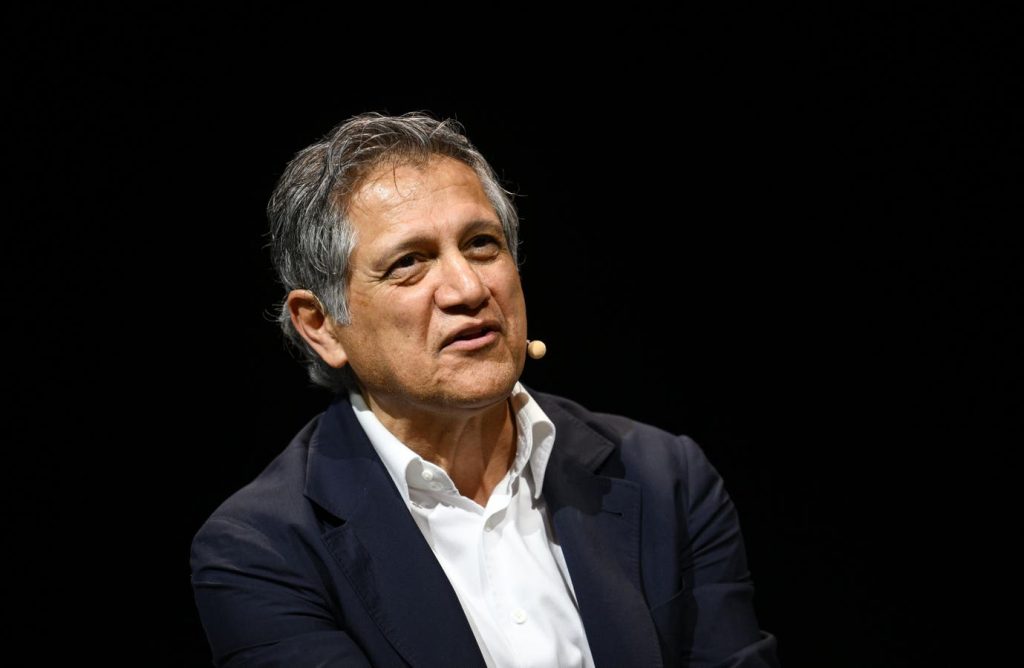Amid ongoing lawsuits between health technology company Masimo and its recently ousted billionaire ex-CEO Joe Kiani, shareholder RTW Investments was dragged into the fight but for the first time is breaking its silence.
In a new filing overnight, the $5.9 billion (assets) New York-based biotech and medtech investment firm filed to dismiss an ongoing lawsuit from Masimo alleging that the firm and Masimo founder Kiani colluded in an “empty voting” scheme to manipulate a board election. RTW asserts in new court filings that the litigation strategy pursued by Masimo’s new leadership is merely a ploy to avoid paying Kiani’s hefty severance package.
“Masimo is attempting to rope the RTW Defendants into its battle with Mr. Kiani to apparently get Mr. Kiani to walk away from his severance payment,” RTW wrote in its court filing. “This lawsuit is frivolous, as evidenced by the fatally defective and baseless Complaint.”
Based in Irvine, California, Masimo makes devices that non-invasively measure oxygen levels in patients’ blood, selling them to hospitals or for at-home use. But the $9 billion (market capitalization) company was recently embroiled in an ugly proxy battle that resulted in a change of leadership.
The saga started in September when Kiani, who has a net worth of $1.3 billion, was ousted as CEO following an ugly and prolonged takeover battle against activist investor Quentin Koffey’s Politan Capital Management. Politan argued that Masimo was suffering from poor governance practices and were especially critical of the company’s $1 billion acquisition of consumer audio company Sound United, which caused share prices to plunge. Kiani resigned as CEO after losing the proxy battle, but shortly after, he and the company sued each other in multiple courts over the issue of his $450 million severance payment.
Politan’s success at Masimo was backed by consulting firms Glass Lewis (GL) and Institutional Shareholder Services (ISS), which primarily advise institutional shareholders on how to vote in the proxies of companies which they own shares in; They control an estimated 97% of the U.S. proxy-advisory market. Critics have argued that backed by proxy powerhouses GL and ISS, Quentin Koffey’s Politan effectively added board members at Masimo who had no experience in running a med tech company, which could end up costing shareholders in the long run.
On October 25, Masimo—with its board now led by former Politan nominees after the takeover battle—sued both Kiani and RTW Investments. They allege that Kiani tried to rig a shareholder vote and that the two parties colluded on an “empty voting” scheme to manipulate the company’s board election. Kiani owns some 9.1% of Masimo stock, while Politan has 8.9%. RTW Investments’ stake rose from 2.8% to 9.9% leading up to the shareholder vote, and shortly after, the firm returned to its normal position. During the proxy battle, RTW voted for existing management, as it typically has a track record of doing.
Masimo’s lawsuit claims that Kiani and RTW colluded to artificially increase RTW’s voting power before the proxy battle by both buying stock and acquiring a short position, then unwinding the trades immediately after the company’s annual meeting. “Intentional empty voting presents a grave threat to shareholder democracy that should not be condoned,” the suit reads.
Shares of Masimo were down 10% for the year going into September, but they have since jumped over 50% following Politan’s successful proxy battle and Kiani’s resignation.
“Masimo and Politan need to find a different way out of the $450 million hole, because trying to malign a professional and well respected firm like RTW Investments will not work,” says Sanford Michelman, the attorney representing RTW. “Given what they have represented to the SEC previously, this lawsuit must be considered frivolous.”
According to the most recent filings, RTW condemns Masimo’s allegations of a voting scheme as simply an effort to find cause for Kiani’s termination, which happened 29 days after his resignation, right before the end of his 30-day notice period. Establishing “cause” would allow Masimo to avoid the hefty severance payment.
RTW’s filing to dismiss the suit also points to an investigation of the accusations conducted by Masimo Lead Independent Director Craig Reynolds, who found that there was no voting arrangement at the time. These findings were reiterated more than four times, RTW’s motion notes, adding that in a separate filing in September, Masimo confirmed that neither Kiani nor any other director had made arrangements with a third-party investor regarding trading or voting shares.
“To now allege there was a secret agreement would mean [Masimo] are saying they continuously lied to the SEC,” adds Michelmen.
“Masimo’s allegation of an ‘empty voting scheme’ is a naked act of public relations which is not rooted in fact or law,” according to RTW’s filing. “Specifically, judicially noticeable documents make clear that a public relations firm working for Politan conceived of the ‘empty voting’ narrative as a public relations stunt to try and discredit Mr. Kiani and sway voting shareholders.”
Both Politan and Masimo did not immediately respond to Forbes’ requests for comment.
Read the full article here












